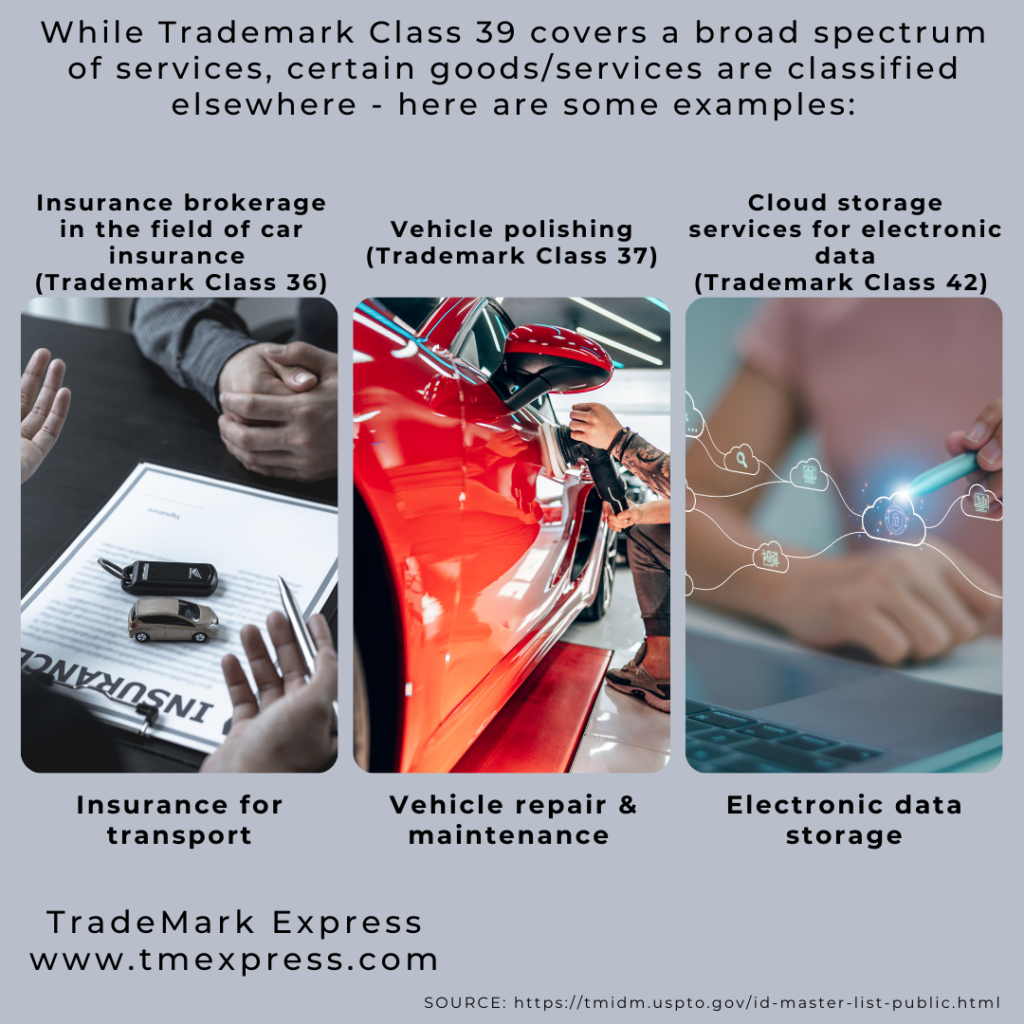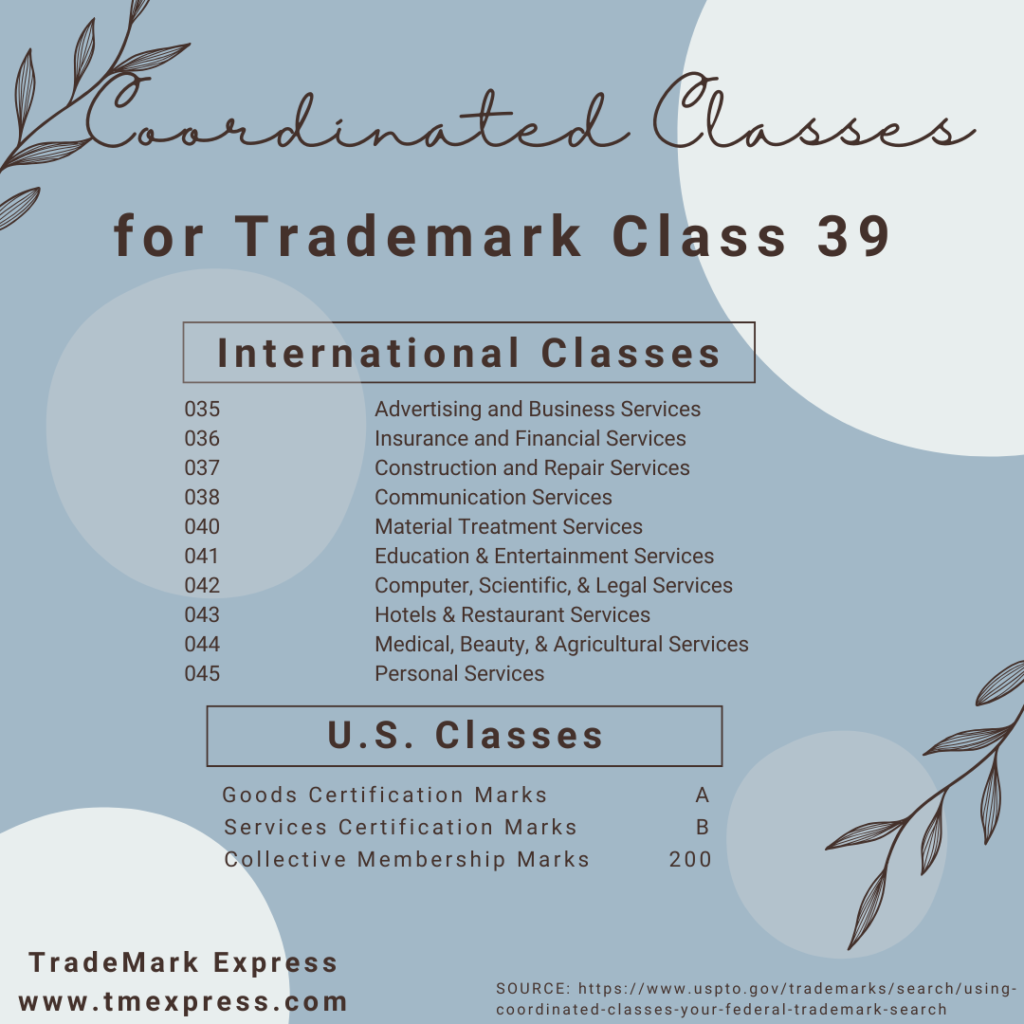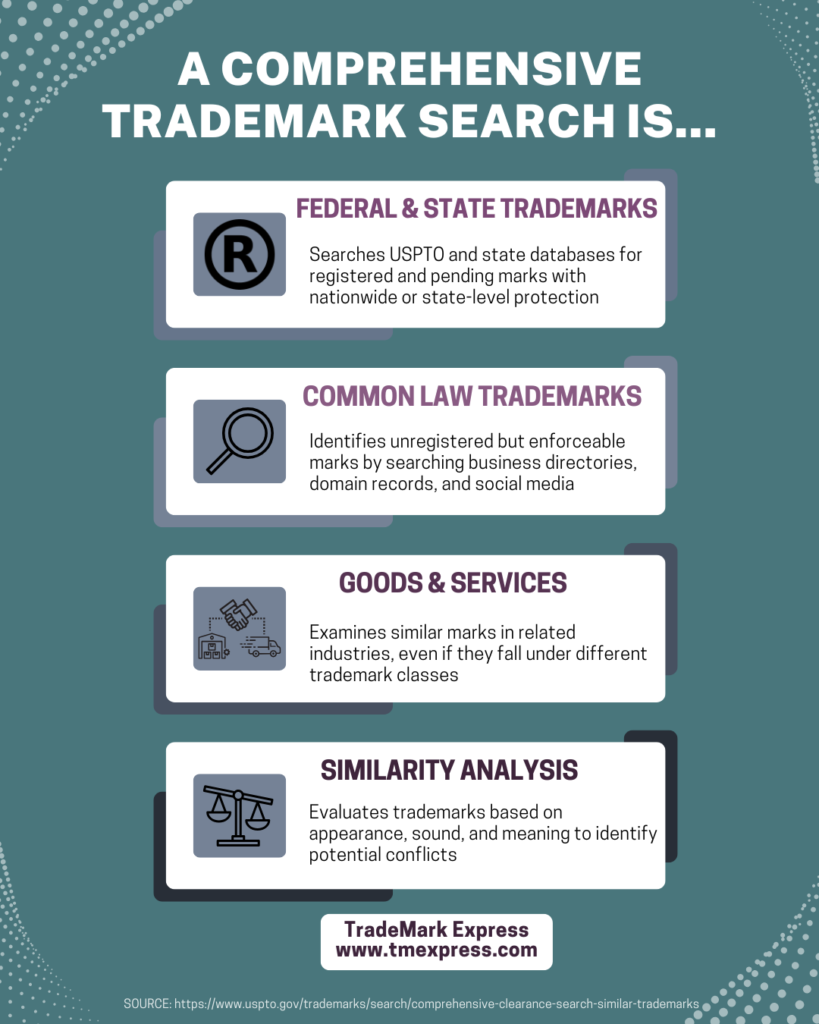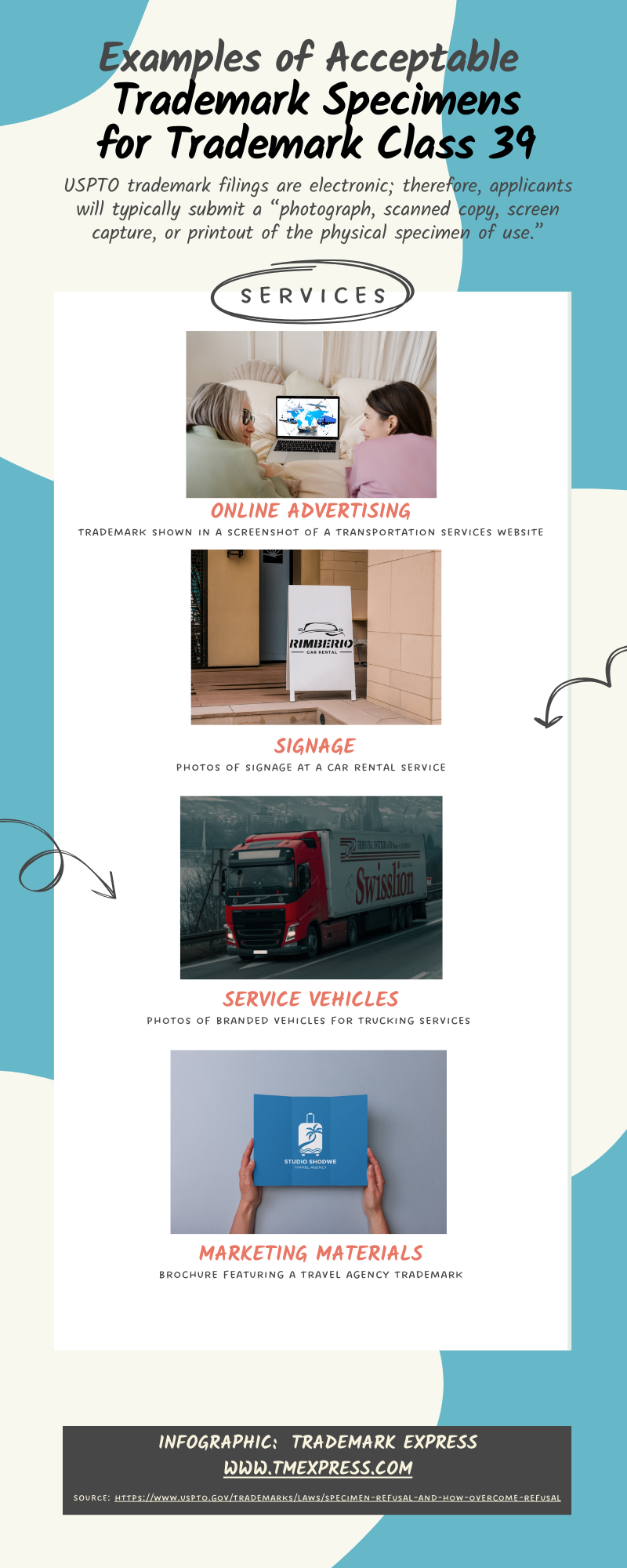Trademark Class 39: Transportation and Storage
Trademark Class 39 is where transportation and storage services get the legal protection they deserve. Whether you’re moving goods across the globe or storing them safely, securing your trademark in this class can set your business apart. But before you file, it’s crucial to understand what’s covered and why a thorough trademark search is your first step to avoiding costly conflicts.
Let’s explore how Trademark Class 39 can protect your brand and keep you ahead of the competition.
What Are Trademark Classes?
Trademark classes are a classification system used by the United States Patent and Trademark Office (USPTO) to organize goods and services for trademark registration. There are 45 trademark classes in total—34 for goods and 11 for services. Each class groups similar goods or services together, helping streamline the trademark registration process and reduce conflicts between similar marks.
What Is Trademark Class 39?
Trademark Class 39 covers services related to transportation, logistics, and storage.

According to the Nice Classification, this class includes services that involve moving people, animals, or goods by land, air, water, or pipelines, as well as services connected to these transport methods. Additionally, it includes the storage of goods in warehouses or other facilities for safekeeping.
Common Trademark Class 39 Services
Businesses that operate under Class 39 typically provide:

- Transportation Services – This includes running transportation hubs like train stations, bus depots, airports, and ferry terminals, as well as operating railways, bridges, and roadways.
- Vehicle and Equipment Rentals – Services such as car rental, truck leasing, and chauffeuring fall under Class 39. This also includes aircraft and boat rentals, as well as storage container rentals.
- Logistics and Delivery – This covers packaging, bottling, wrapping, and delivering goods, including shipping services. It also includes services like refilling vending machines or ATMs.
- Maritime and Port Services – The operation of ports, docks, and maritime tugging services belong in Class 39. Additionally, it includes unloading cargo, salvaging shipwrecks, and handling lost cargo.
- Travel and Transportation Information Services – Travel agencies providing information about ticket prices, travel routes, or timetables fall under this category. This also includes vehicle and cargo inspection for transport safety.
- Utility Distribution – Class 39 includes the distribution of resources such as electricity, natural gas, and water.
Services That Are NOT in Trademark Class 39
Some services may seem like they belong in Class 39 but are actually classified elsewhere:

- Travel Advertising and Marketing (Class 35) – If a company provides advertising services for travel agencies or transportation businesses, those services are classified under Class 35.
- Insurance for Transport (Class 36) – Insurance coverage related to travel, cargo, or vehicles is grouped under financial and insurance services in Class 36.
- Vehicle Repair and Maintenance (Class 37) – If a business focuses on fixing or maintaining vehicles, it falls under Class 37 rather than Class 39.
- Guided Tours (Class 41) – While Class 39 includes transportation services, guided sightseeing tours belong to the education and entertainment category in Class 41.
- Electronic Data Storage (Class 42) – While Class 39 includes physical storage, digital and electronic storage services belong in Class 42.
- Hotel and Accommodation Booking (Class 43) – Travel agencies that book hotel stays are classified under Class 43, not Class 39.
How USPTO Filing Fees Work
The USPTO determines trademark application fees based on the number of classes a trademark falls under. For each class, applicants must pay a filing fee of $350. Because most trademark-related costs —including renewal and maintenance fees—are charged per class, trademark owners should consider the total cost before filing.
Coordinated Classes for Trademark Class 39
Since trademarks are evaluated based on potential conflicts with related goods or services, businesses should consider coordinated classes. Coordinated classes are classifications that group together trademarks that might be associated with each other due to overlapping industries or services.

For trademark Class 39, the following coordinated classes may be relevant:
- Class 35 – Advertising and business services
- Class 36 – Insurance and financial services
- Class 37 – Construction and repair services
- Class 38 – Communication services
- Class 40 – Material treatment services
- Class 41 – Education and entertainment services
- Class 42 – Computer, scientific, and legal services
- Class 43 – Hotels and restaurant services
- Class 44 – Medical, beauty, and agricultural services
- Class 45 – Personal services
- Certification Marks (A, B) and Collective Membership Marks (200)
A comprehensive trademark services company will analyze coordinated classes to ensure trademark protection extends to related areas.
Why a Trademark Search Is Essential for Class 39 Services
For businesses offering transportation and storage services, securing a trademark is a critical step in protecting their brand identity. However, before filing a trademark application, conducting a comprehensive trademark search is essential to avoid potential legal conflicts.
A trademark search ensures that your business name or logo is unique within Trademark Class 39 and does not infringe on another company’s rights.
What a Comprehensive Trademark Search Includes
A full trademark search should cover:

- Federal and State Trademarks – This involves searching the USPTO database for registered and pending Federal trademarks, which have nationwide rights, and State trademarks, which have protection within specific states.
- Common Law Trademarks – Not all trademarks are registered. Businesses may acquire trademark rights simply by using a mark in commerce, i.e., common law rights. Searching online common law sources, business directories, domain registrations, and social media can help uncover these unregistered but legally enforceable marks.
- Goods and Services Analysis – A strong trademark search doesn’t just check for identical names—it also looks for similar marks in related industries. Goods or services don’t have to be in the same international class to be considered related. If they are frequently advertised together, sold by the same business, used by the same customers, or commonly offered alongside one another, they may still be deemed related.
- Similarity Analysis – A trademark search should check for potential conflicts by looking at how similar trademarks appear, sound, or convey meaning. Even if two trademarks aren’t exactly the same, they could still be considered too similar and cause confusion.
Because of the complexities involved, it’s wise to work with a professional trademark search company like TradeMark Express. Our team ensures that your trademark search is comprehensive, reducing the risk of rejection and legal disputes.
Acceptable Trademark Specimens for Class 39
When applying for a service-based trademark, applicants must submit a specimen, which serves as proof of how the trademark is used in commerce. The specimen must show the trademark directly linked to the services provided.
Examples of Acceptable Trademark Specimens for Class 39

- Advertisements in Print or Online – A newspaper or website ad displaying the trademark with the transportation or storage service.
- Television or Radio Commercials – An MP3 or MP4 file of a TV or radio commercial that features the trademark for drone delivery services.
- Marketing Materials – Brochures or leaflets showcasing the trademark alongside details about the travel agency services.
- Signage at Service Locations – Photos of a sign at a warehouse and shipping facility displaying the trademark.
- Service Vehicles – Images of delivery trucks, taxis, or cargo ships branded with the trademark.
- Invoices – Copies of invoices showing the trademark alongside chauffeuring services details.
- Business Cards and Letterhead – Company stationery that includes the trademark for public utility services.
Conclusion
Trademark Class 39 plays a crucial role in protecting businesses that provide transportation, logistics, and storage services. Since trademark fees are charged per class, businesses should carefully consider whether they need to register in multiple classes. A thorough trademark search is essential to avoid conflicts, and coordinated classes should be reviewed for additional protection.
For a comprehensive trademark search and registration process, TradeMark Express is here to help. Contact us today to ensure your trademark is fully protected and your business name is secure for years to come.
